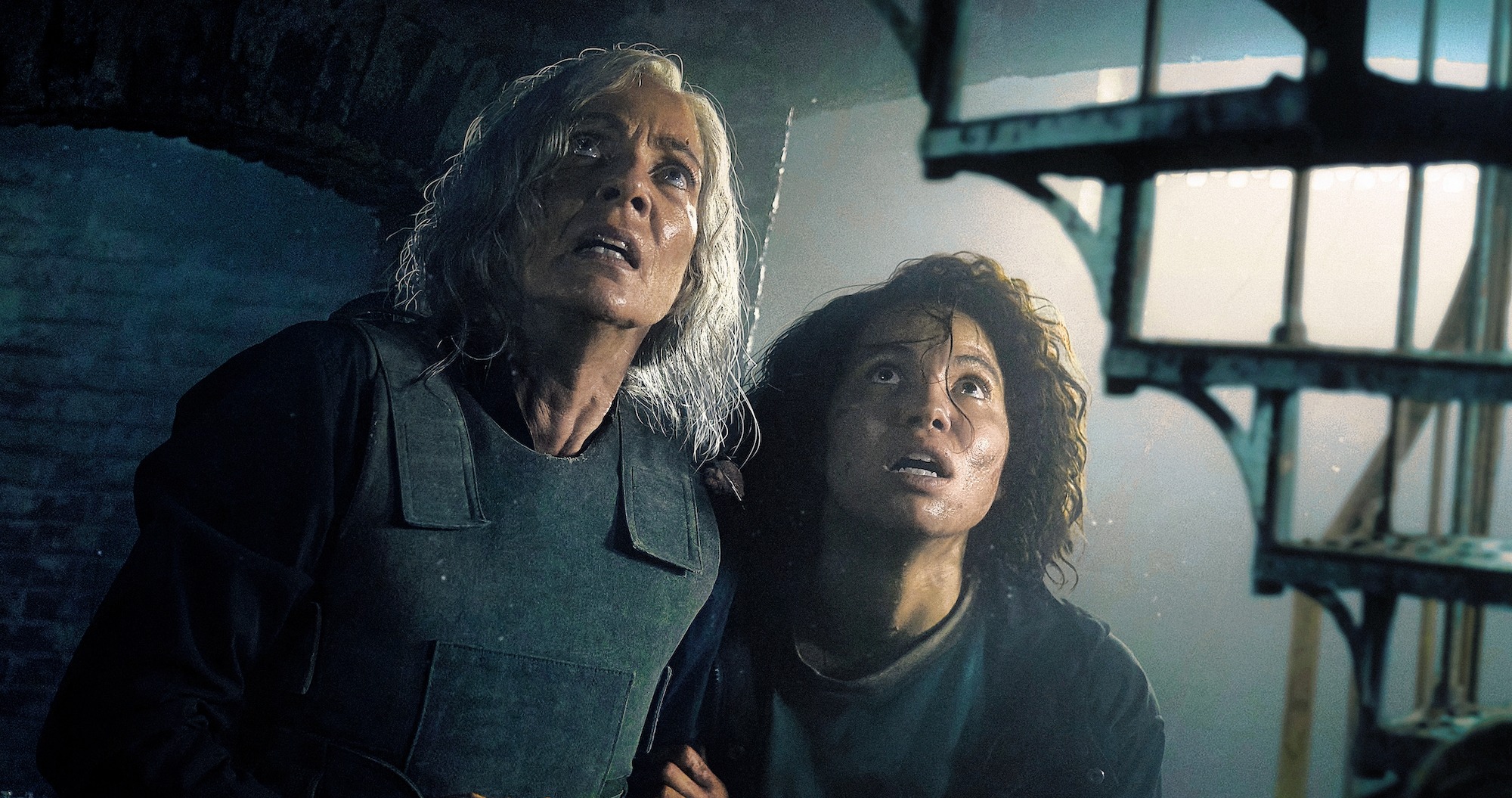In Lou, Allison Janney is a tight-lipped, tough-as-nails action heroine
Like Nobody and Taken before it, Anna Foerster's thriller transforms a serious actor into a convincing ass-kicker

In Lou, it’s flat-out fun to see Allison Janney get to make her own version of Taken and Nobody. And she plays the vengeful, flawed savior role with just as much no-nonsense determination, rigorous gusto, and grizzled grit as Liam Neeson and Bob Odenkirk ever could—combined. Anna Foerster (who helmed the under-valued Underworld: Blood Wars) nimbly directs her first action-thriller, which follows a world-weary woman who gets another stab (and punch and kick…) at redemption when someone from her past resurfaces. Although it’s slightly overlong, the movie more than measures up to those of her male counterparts in the “serious actor starts kicking ass” subgenre.
They say that no man is an island, but Lou (Allison Janney) has certainly relegated herself to one on Orcas Island in the Pacific Northwest. The years have clearly worn on her, turning her abrasive to many of the townsfolk, yet she’s still compassionate enough to tend to her loyal dog Jax (played by dog-actors Ozzie and Jersey). Her sharpshooting skills and body are beginning to betray her, adding to the deterioration of what’s left of her conscience. This hasn’t stopped Sherriff Rawlins (Matt Craven) from trying to break down her walls, flirting delicately with her when she comes into town.
Lou has also—literally and figuratively—buried some big secrets in her backyard: documents telling of a sordid past she’s clearly been running from for years. After digging them up for disposal before committing suicide, she gets interrupted by her tenant Hannah (Jurnee Smollett) frantically searching for her young daughter Vee (Ridley Asha Bateman), who’s been kidnapped by dangerous sociopath/ex-Green Beret Philip (Logan Marshall-Green) during a raging storm. Despite her earlier plans, Lou becomes compelled to utilize her long-buried “special set of skills” to rescue Vee, even as she (perhaps obviously) reckons with unresolved trauma of her own.
Foerster and screenwriters Maggie Cohn and Jack Stanley conceive a landscape full of allusions and metaphors: a cavernous divide Lou and Hannah must cross in their pursuit of Philip and Vee pulls double duty as symbolism, but it also functions plainly to induce sweaty-palmed intensity. Each location serves as a mirror for both the internal and external stakes for these characters, unraveling Lou and Philip’s backstories through a handful of heavy exposition dumps even as they intensify their conflict.
Lou’s chosen introverted lifestyle works well in terms of her inevitable, softly developed, redemptive arc. Her motivation isn’t solely to rescue a pint-sized damsel in distress, though that’s one goal, but to make right some previous wrongs—even with the kidnapper. Unlike the hero at the heart of Nobody, who’s drawn back to violence because his ego takes a hit, she’s called into action to save someone greater than herself. That it offers a means to an end—possibly ending her life by helping someone else—helps her atone for past transgressions weighing silently on her shoulders.
The workmanlike fight sequences are scrappy, skillful and precisely executed, never populated with overused moves. Stunt coordinator Dan Shea and fight choreographer Daniel Bernhardt make use of everyday objects for Lou to fashion into weapons, whether that be a crudely opened soup can or a pot boiling on a stove. These gritty, grimy fisticuffs leave dirt under these characters’ nails. A climactic hand-to-hand combat sequence where two maimed characters duke it out amidst rough ocean waves is fueled by anger, sorrow and regret. The moment, relying heavily on composer Nima Fakhrara’s grim, mournful score, emphasizes there are no winners. Each has something major to lose, everything from their guilt to their glory.
In Janney’s capable hands, our heroine is fully fleshed out, yet lean with more gristle on the bone than meat. She delivers zingy one-liners as well as she does a knock-out punch. Her refreshing spin on this archetype, blending masculine bravado and bluster with feminine wit and wisdom, elevates the spartan material. Smollett’s performance doesn’t quite rise to the same level—unfortunate since she’s such a dynamic scene-stealer in Birds Of Prey and Spiderhead. Hannah’s desperation remains on the surface, but when she’s called upon to give further dimension to her ensuing pressure-cooker scenarios, she wavers. The scene where she exposes her scars to Lou is built to be a revelatory moment, but rather than broadening the emotional scope, it never evolves beyond the superficial.
Tiny innovative touches to the picture’s construction, from its narrative components to its technical elements, keep things compelling and propulsive. Foerster’s film isn’t interested in total reinvention, nor is it particularly concerned with deconstructing and challenging genre tropes. Lou’s success lies in streamlining the expected rhythms of a movie where a serious actor starts kicking ass, and the tweaking them ever so slightly to make every punch land with compelling—if not quite unique—power.